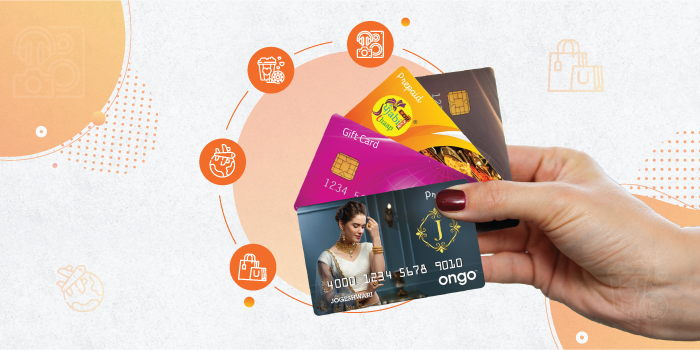Imagine this is in early 2000s. You walk into a high-street mall in Delhi. You are craving a burger and there are many options at that food court. You visit the food counter, buy your meal-card and pay digitally using the pre-loaded amount.
Imagine this is in early 2000s. You walk into a high-street mall in Delhi. You are craving a burger and there are many options at that food court. You visit the food counter, buy your meal-card and pay digitally using the pre-loaded amount. This experience bestowed users with a sense of pride. No hassles of standing in que for change and quick service at counters. Whether or not you had a bank account, you could still experience card-based payments.
Prepaid cards are undoubtedly one of the fastest growing yet underrated financial instruments in India. According to an industry study, the Indian prepaid cards market is expected to grow at a CAGR of 40.5% by 2026. Unlike debit card, which requires customer to have a savings bank account, prepaid card has the potential to cater to the unbanked population as well. It also lends a sense of security to consumers who are not comfortable with digital mediums as these cards do not potentially expose their entire savings while making transaction. Further, these cards enable the customer to control expenses as the amount preloaded is the only amount that can be spent.
While we must have come across prepaid cards in some form or the other, let us understand the various types of prepaid cards:
Closed-loop cards
Generally closed-loop cards are functional and accepted only with a single payee at a certain store or chain of stores. These cards are issued by retailers to offer benefits such as discounts and loyalty points to their customers. For instance, gift cards or loyalty cards issued by a departmental store or cafe. However, such cards have a limited scope as they can be used only at the participating outlets.
Ongo, the digital payments brand of AGS Transact Technologies, provides a digital platform to run customised loyalty programs for retail merchant base. Currently, 6.5 lakh such cards have been sourced.
While most closed-loop prepaid cards are reloadable, gift cards are non-reloadable.
Semi-open loop cards
Semi-open loop cards are also known as hybrid cards. These cards can be redeemed at a group of establishments within a shopping mall, resorts etc. or at any participating entity. They can re-loadable or non-reloadable but will not permit cash withdrawals. The F&B industry made utmost use of these cards as users began using Sodexo Meal Card or other prepaid cards for purchasing snacks and essentials at Food Courts, restaurants, etc.
Kochi Metro introduced Kochi 1in 2017 to facilitate seamless payments across transit payment touchpoints in the city. Accepted in over 200 private buses, these RuPay-operated cards will also be used in the Water Metro ferries, avoiding the need to carry multiple travel cards.
Many corporate organisations have begun to gratify their employees through Prepaid Gift cards or Cash cards issued by the Banks. In some cases, corporates also disburse yearly/Diwali bonus, travel & other reimbursements through such cards. These are non-reloadable cards that can be used at various physical & online platforms similar to a debit card.
AGS Transact Technologies recently recognised its women achievers by rewarding them with pre-loaded Ongo gift cards that could be used at any PoS or online portal accepting RuPay-operated cards. The women support staff were delighted to have been able to make their first digital payment through Ongo Gift cards.
Open-loop cards
An open-loop card is accepted across all entities that have been approved by the Reserve Bank of India. These cards can also be used to withdraw cash, in addition to shopping, commute, remittance etc. These cards are a secure and convenient alternate to carrying currency.
The prime example of this is the National Common Mobility Card (NCMC). A first of its kind open-loop card introduced by the Government of India, this interoperable card allows the customer to commute, shop, dine and pay bills across all entities that have been approved by the Reserve Bank of India. It is also possible to withdraw cash from an ATM using via NCMC card. The implementation of such cards will revolutionise the day-to-day transit and retail payments.
The road ahead
Even though there has been a massive increase in digital payments, Indian customers need a sense of ‘physical’ owing when it comes to making transactions. Prepaid cards have the potential to bridge this gap as it provides customers with best of both the worlds- Physical & Digital. Further, pre-paid cards accelerate digital penetration across sectors, age groups and cities & towns. The growth of electronically produced virtual prepaid cards is likely to deeper penetration of ‘Digital’ initiatives and take us a step closer towards realising the ‘Digital India’ dream.


